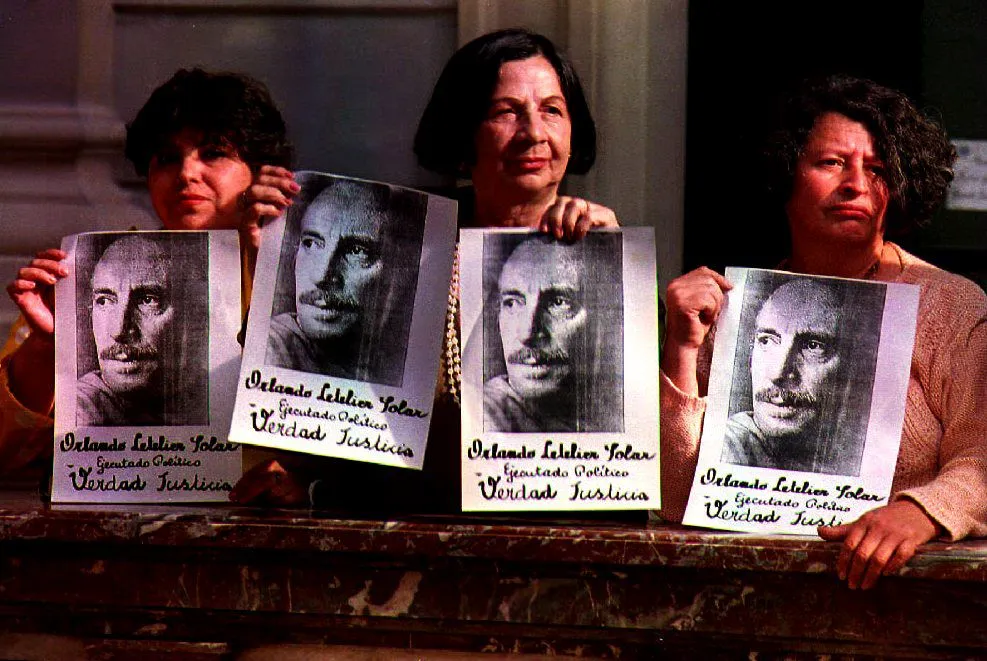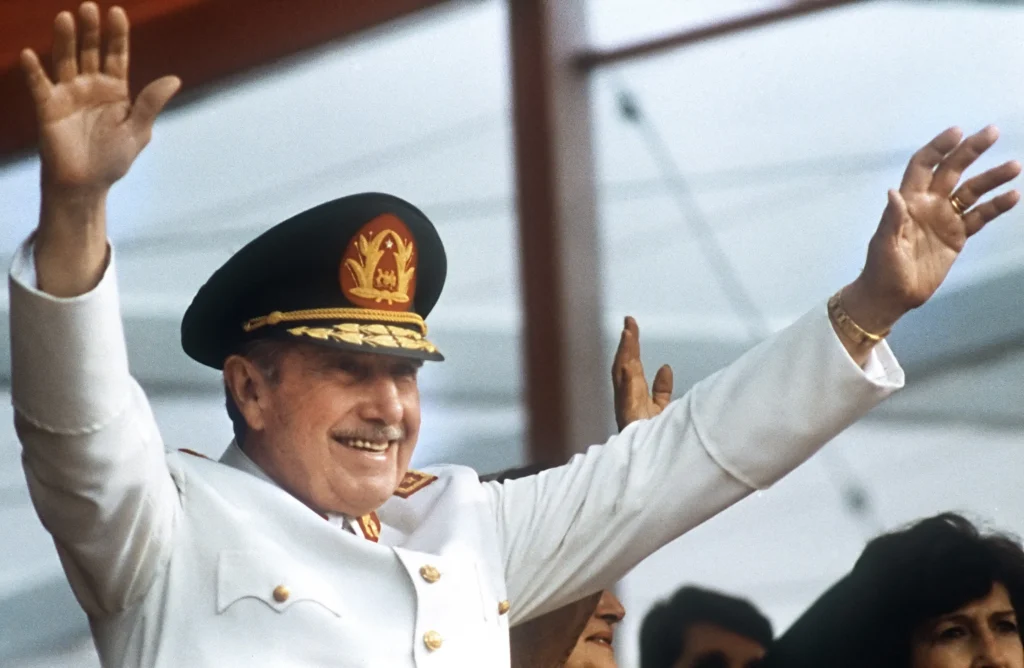Newsmatro

Nearly five decades ago, a devastating car bomb detonated along Washington, D.C.’s prestigious Embassy Row, claiming the lives of Orlando Letelier, a prominent Chilean diplomat, and his newlywed colleague, Ronni Moffitt. This horrific event was orchestrated by Chilean dictator Gen. Augusto Pinochet, serving as a grim reminder to the world of his perceived invincibility.
On the upcoming anniversary of this tragedy, Chile’s current President, Gabriel Boric, along with Letelier’s family and advocates for justice, will convene at the site where the bombing occurred on September 21, 1976.
Boric, who has been actively addressing the atrocities committed during Pinochet’s regime, is expected to deliver a speech commemorating this somber occasion. His visit to Washington follows closely on the heels of the 50th anniversary of the U.S.-backed coup that catapulted Pinochet to power in 1973, referred to as “the other 9/11.”
Here’s a closer look at Orlando Letelier, the brutal regime of Pinochet, and why events from decades ago continue to reverberate in both the United States and Chile.
Orlando Letelier: A Brief Profile
Orlando Letelier served as Chile’s ambassador to the United States and as the defense minister under socialist President Salvador Allende. Tragically, Allende is believed to have died by a self-inflicted gunshot during the military-backed coup on September 11, 1973.
Pinochet assumed the presidency just two days later. During Pinochet’s 17-year rule, no less than 3,065 individuals were killed or disappeared, with thousands more subjected to imprisonment and torture, including Letelier. He endured approximately a year of captivity before international pressure secured his release in 1974.
Following his exile, Letelier, a married father of four sons, relocated to Washington, D.C., where he became a senior fellow at the Institute for Policy Studies, a progressive think tank. Despite the risks, Letelier used his newfound freedom to condemn the ongoing atrocities in his homeland. On September 10, 1976, he delivered a passionate speech at Madison Square Garden in New York City, asserting, “I was born a Chilean, I am a Chilean, and I will die a Chilean.”
Just 11 days later, Letelier was killed in a car bombing.
The Bombing
Orlando Letelier, aged 44, was driving his blue Chevrolet Chevelle with his assistant, Ronni Moffitt, seated beside him, and Ronni’s husband, Michael, in the rear when a planted bomb in the vehicle detonated. The explosion claimed Letelier’s life instantly, while Ronni Moffitt succumbed to her injuries shortly thereafter. Michael sustained minor injuries.
Iván Jakšić, a Chilean native and an authority on Chilean politics, describes the assassination as a blatant and impactful act of brutality. He also points to the assassination of Carlos Prats González in Buenos Aires in 1974, another minister of defense under Allende, who was killed alongside his wife in a car bomb.
This violence showcased the lengths to which Pinochet’s regime would go to eliminate potential adversaries and sent a chilling message about the vulnerability of the exile community.

A Wake-Up Call for the U.S.
Orlando Letelier’s assassination served as a wake-up call for the United States. Until then, the full extent of Pinochet’s brutal regime had not been apparent in the U.S., despite the government’s involvement in a covert effort to destabilize Allende’s government during the Cold War.
The bombing, considered the most notorious international terrorist attack in the nation’s capital before 9/11, shocked U.S. authorities, who were supporting the Pinochet regime at the time. Seven individuals were prosecuted in connection with the bombing between 1978 and 1991, including Michael Townley, a U.S. citizen working for the Chilean secret police, who pleaded guilty in 1978 to organizing the assassination. However, Townley served only five years in prison in exchange for testifying against five Cuban exiles involved in the bombing.
While two Chilean officials served prison time in their home country related to the bombing, Pinochet was never brought to trial and died in 2006.
Chile’s Ongoing Pursuit of Justice
More than three decades after the fall of Pinochet’s dictatorship, Chile’s President Gabriel Boric has been working diligently to address the regime’s atrocities. Currently, over 1,100 individuals who disappeared during that period remain unaccounted for. Boric recently announced a national search effort to locate those still missing, emphasizing the importance of knowing the whole truth to build a future based on freedom and respect for life and human dignity.
Juan Pablo Letelier, Orlando Letelier’s son and a former Chilean senator, praised Boric’s visit to his father’s memorial, underscoring the significance of honoring the missing and acknowledging their pain. He emphasized his father’s message of unity and political engagement in the pursuit of justice and democracy.
In addition to the executions, imprisonments, and torture that occurred during Pinochet’s rule, human rights organizations believe that as many as 20,000 babies were forcibly taken from low-income Chilean mothers and adopted by unsuspecting parents in the U.S.
Today, ongoing efforts to uncover the truth about these stolen children have led many adopted Chileans to discover their true backgrounds. This struggle for justice and remembrance continues to be a vital part of Chile’s history.
The anniversary of Orlando Letelier’s car bombing serves as a poignant reminder of the atrocities committed under Pinochet’s regime and the enduring quest for justice and truth in Chile. It is a time to honor Letelier, Ronni Moffitt, and countless others who suffered during this dark period, as well as to reaffirm the commitment to the fight for justice, democracy, and human rights.